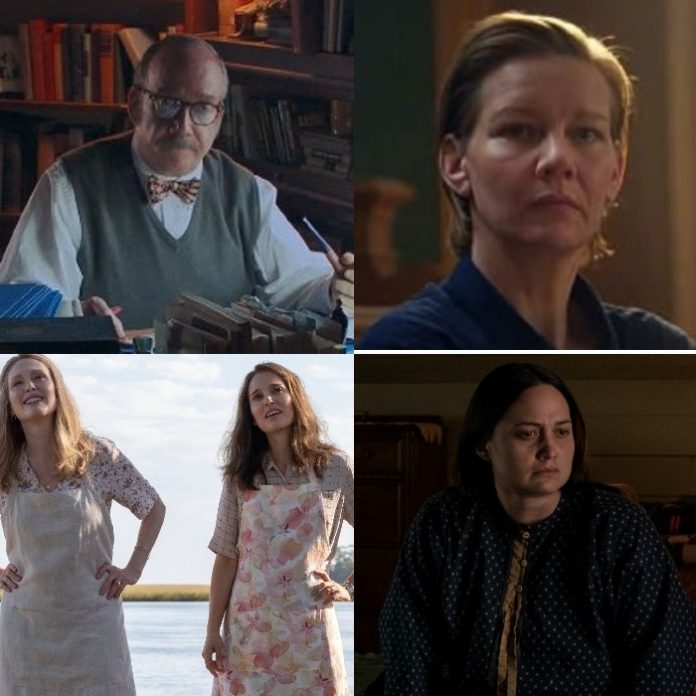A lot of good things happened in the world of cinema in 2023. We will get to the incredible level of quality—arguably the best film year since 2016—in a second. The most important thing that came out of this year was the loud and clear message(s) that movie audiences sent Hollywood: “We will come back to the movie theaters.” Between The Super Mario Bros. Movie and the worldwide phenomenon that became known as Barbenheimer – not to mention the incredibly ticket sales for a nearly four hour epic, Killers of the Flower Moon – moviegoers proved they can be hauled back into the seats.
Almost as delicious was the coda to the message, which was “But you have to make it worth our while.” Despite a decent entry here and there, most Marvel Cinematic Universe films plumbed new depths in terms of originality and entertainment value, and audiences properly punished the franchise accordingly. Indeed, after dominating the box office for nearly a decade, Disney suffered a tremendous retrenchment, with films that would have been gang busters out of Pixar—most notably Elemental—succumbing to the “why bother?” notion when Disney cannot decide where and how to make these films available. Can the studios keep the momentum going at the box office in 2024? And will they have sufficient material to do so, or will the hangover from the 2023 strike-related shutdowns loom large?
These are the questions on movie observers’ minds as we head into the New Year. Before we fully turn the page though, let’s look back at what a plentiful year at was at the movies. One left the fall festival season feeling there was not a rotten apple in the bunch, and the Academy Awards look poised to offer up 10 pictures that—unless one or two questionable choices sneak in—could be the best slate in decades.
Fundamentally, first time as well as seasoned directors proved that cinema is a language that can speak to our collective humanity in a way that no medium ever has or likely ever well. Stories from across the globe and across time connect our collective anxieties, hopes, and dreams in ways that constantly reveal something about our troubled species. Perhaps this is why the theme that resonated the loudest across most films was the complicated relationship between past and present—between fathers and sons, mothers and daughters, parents and children. As a first-time parent myself, this theme spoke strongly and left indelible marks from all directions.
A final word before we get into it. I do not know what the 10 best movies of the year are. How could I? Despite seeing over 250 films, hundreds remain, particularly if one goes outside the world of these United States, where the quality was just as impressive as it was at home. And how could one just pick ten movies, when incredible work across the world this year included the surprising Wonka, the touching adaptation of the classic novel in Are You There God? It’s Me Margaret, Christopher Nolan’s masterpiece Oppenheimer, Nicole Holofcener’s touching You Hurt My Feelings, and incredible work from around the world such as La Chimera (Italy), Fallen Leaves (Finland), The Society of the Snow (Spain) and The Settlers (Chile)?
Rather than suggest the 10 best films of the year, then, I recommend the following 10 pictures that were some of my favorites amongst so many.
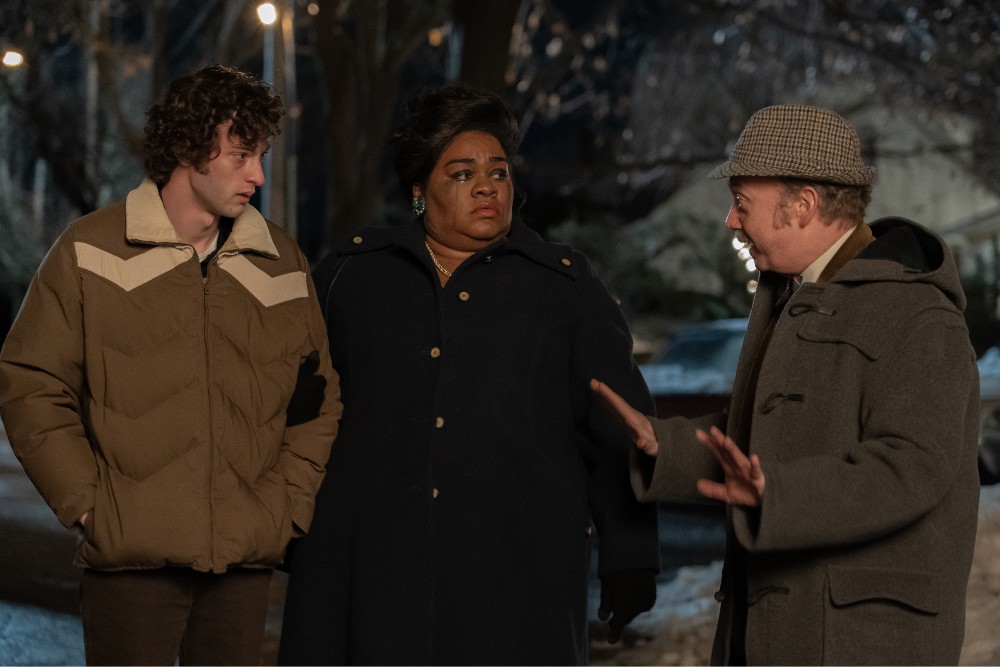
10. The Holdovers (Focus Features)
Alexander Payne’s best movie since Election, this touching dramedy about three vastly different people who find themselves cooped up over the holidays in a New England boarding school brings a smile to the heart every time one reflects upon it. Paul Giamatti stars as a curmudgeonly professor. He has a lot to teach but also to learn from his troubled but brilliant student, played by newcomer Dominic Sessa, as well as the school’s chef Mary, played by Da’Vine Joy Randolph, who is—well—divine. Reminding us that human learning is an evolving, constant process, and that the best parents or children can be found where we least expect them, The Holdovers is a quiet but forceful reaffirmation that humans can find joy in each other, throughout our troubles.
9. Origin (NEON)
Director Ava DuVerney’s most ambitious project to date, this film stars Aunjanue Ellis (King Richard) as nonfiction writer Isabel Wilkerson as she embarks upon a journey of discovering both self, as well as broader themes about the reasons for human suffering. The movie is loosely based on Wilkerson’s novel Caste, which hypothesizes that structural societal scaffoldings about making groups inferior are at the core of much of modern human ailments, positing that racism alone cannot explain it. What is so incredible about DuVerney’s version is that she sets forth what amounts to a relatively droll academic thesis in a personal way that splices across eras and countries, using the warm if troubled experiences of her protagonist, as depicted stunningly by Ms. Ellis. It is an urgent, timely, and relevant picture that will be unheralded this year, but will be likely understood for the sociological masterpiece that it is in years to come.
8. Tótem (Sideshow/Janus Films)
For her sophomore offering, Lila Avilés reminds us that the resurgence of Mexican cinema stretches far beyond the bougey confines of the directors dubbed “The Three Amigos.” Seven-year-old Sol watches as her bustling, busy family convenes to celebrate her father’s birthday—in preparation for mourning him. With a firm grasp of the core of Mexican culture today, Avilés tells—through the confused, exasperated, and innocent eyes of her child protagonist—a rich tapestry of the country’s current state. Still fixated on death and spirits, the people in this film have complex, loving, difficult, and contradictory characters. Little Sol feels helpless and haunted, as do we, as the celebration comes to a symbolic crescendo of candles being blown out. The celebration, it turns out, is of life itself, through a story that creeps into you like the spirits surrounding its contours.
7. The Taste of Things (La Passion de Dodin Bouffant) (IFC Films)
Vietnamese director Trần Anh Hùng’s film about a French gourmet chef in the late 19th Century (Benoit Magimel) and his principal cook (Juliette Binoche) is one of the most exquisite, delectable films of the year. Binoche’s character Eugenie has worked for this renowned chef for over 20 years, spending so many hours passionately making meals from farm to table for Europe’s most dignified that, inevitably, another sort of passion arose between them. But as much as the two characters’ cravings for each other are powerfully portrayed by the two talented leads, it is ultimately Hung’s own appetite for the story that makes it a triumph. Featuring long sequences that detail cooking marvelously involved meals, The Taste of Things reminds us that a desire for something as well as for someone can be expressed tenderly in art forms beyond our more conventional ones.
6. Last Summer (L’Ete Dernier) (Sideshow/Janus Films)
French provocateur filmmaker Catherine Breillart returns with this troubling picture of an older woman who has a torrid affair with her teenage stepson. Lea Drucker plays Anne, a respected middle-aged lawyer who lives a tranquil, very French life in the suburbs with her husband Pierre and two daughters. When Pierre’s first son from another marriage, the sensuous Theo (Samuel Kircher) shows up, the two find themselves pushing the limits of their own sanities—not to mention the laws around them. A sordid twist on the much gentler themes of parents and children that suffuse the movies on this list, Breillart achieves her purpose—to depict a richly layered woman that you want to root for despite the shocking, atrocious conceit at her very core.
5. May December (Netflix)
Perhaps it is a waste of a slot to select two films with similar themes, but Todd Haynes’ latest drama is perhaps a better, though less subtle version of Breillart’s movie about illicit love affairs. In Haynes’ movie, Julianne Moore is Gracie Atherton, an older woman who is still married to Joe (Charles Melton), who she met when the latter was in the seventh grade and Gracie was 36. Their relatively peaceful life is shattered not by the arrival of another young man, but of Elizabeth (Natalie Portman), who seeks to play Gracie in a movie about their affair. As the film’s many layers slowly reveal themselves, we discover that these people—who we are effectively convinced into sympathizing with—are monsters and victims in their own different ways. Sprinkled with Haynes’ effective, sardonic playfulness as well as with dry humor, May December is one of the best films this year because, again, it upends the traditional relationships between parents and children while using the stunning acting talent of its three stars to trick you into feeling empathy for brutally difficult characters.
4. All of Us Strangers (Searchlight Studios)
Over the years, Andrew Haigh’s work has proven some of the most emotionally powerful to hit the big screen. His latest, the brutally expressive All of Us Strangers, is no exception, and perhaps a worthy follow-up to his 2010 masterpiece, Weekend. In this tale Adam and Harry, two strangers played by a magnificent Andrew Scott and the surging Paul Mescal, find themselves in love in a surreal, ethereal London apartment building that appears abandoned and may as well be a symbol of the afterlife. Throughout their journey, Adam also revisits his childhood British countryside where he reencounters his parents, portrayed by Jamie Bell and an incredible, Oscar-worthy Claire Foy. More than any other movie in this list, All of Us Strangers is about the bonds that unite humans—and the chasms that separate us—through time and different generations. It is about the power of natural as well as learned love. About loneliness, and about desire. In just a short two hours it is, in other words, about all of us.
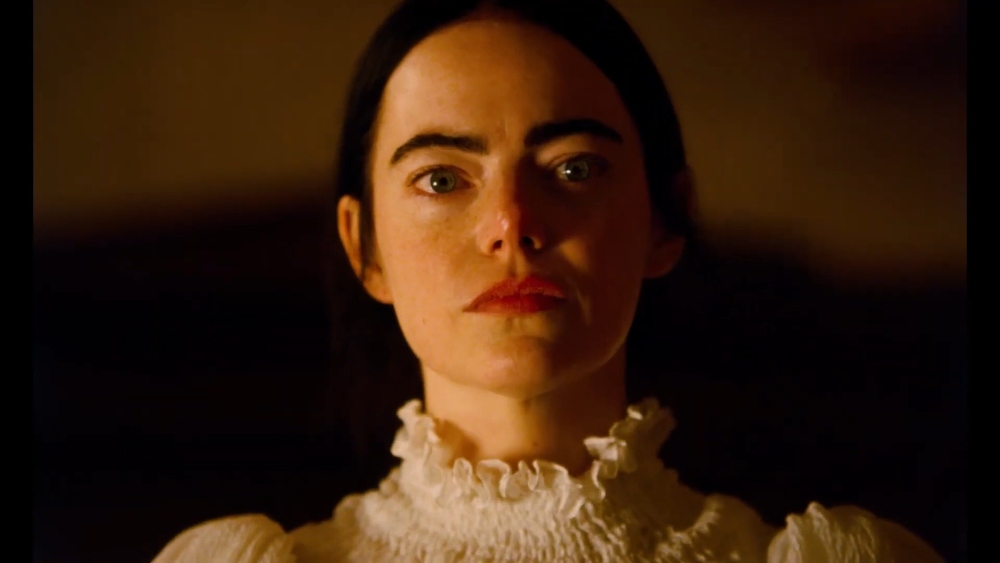
3. Poor Things (Searchlight Studios)
Greek director Yorgos Lanthimos’ (The Favourite) returns, armed with a bulging studio budget for the first time, which he puts to marvelous use in this year’s Poor Things. The Frankenstein-lite story follows Bella (Emma Stone), an odd creature who lives entrapped in a Victorian mansion by her father/creator Godwin Baxter (Willem Dafoe). Through Bella’s own travails and self-discovery, we are invited to discover the world anew, shedding aside old conceits and asking questions from a tabula rasa like Bella does. In a career best performance, Stone is entrancing as the childlike and then confidently assertive main character, who runs away with a greasy lawyer played by a delightful Mark Ruffalo and who eventually realizes the intractable complexities of the world beyond her own, formerly quiet existence. Poor Things, in short, has it all, including a surreal palette, stunning costumes, incredible makeup, and out of this world acting. Lanthimos’ unique, at times provoking vision is here to stay, with Poor Things unquestionably his best film to date.
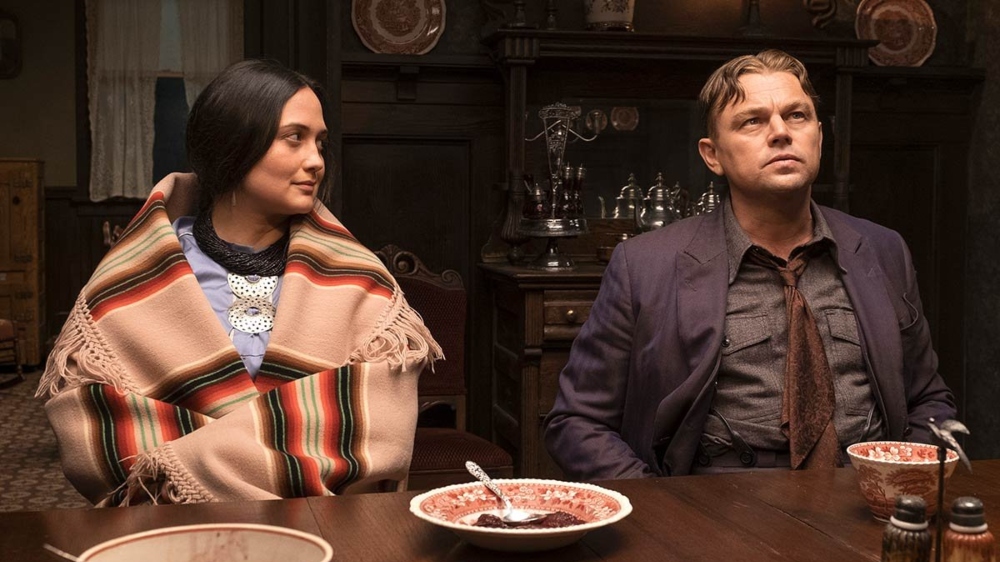
2. Killers of the Flower Moon (Apple/Paramount)
Many critics have named Martin Scorsese’s late career epic about the murders of certain members of the Osage Indians in the 1920s as 2023’s best year. And rightfully so. Spanning nearly four hours, Scorsese grips you to your seat like no other living director can. He uses the usual below the line mastery by longtime collaborators such as Editor Thelma Schoonmaker and the rich tapestry of period production and costume designs. He relies knowingly but magnanimously on the boundless talent of longtime collaborators Robert DeNiro and Leonardo DiCaprio, the patriarch of a criminal enterprise and his bumbling ambitious nephew, as well as on Lily Gladstone as the latter’s loving but long-suffering wife. More than anything, though, Scorsese relies on his own love and subsequent ability to tell stories in unique but poignant ways. Like so many of his movies, Killers of the Flower Moon is tremendously disorienting but enthralling, vicious but gentle. Scorsese touches so many subject matters that it is a wonder he can do so persuasively. And yet by the end of the runtime you will be wanting for more, stunned by the cinematic achievement as much as by the story itself. By the end of the runtime it will be crystal clear that Martin Scorsese is America’s greatest living director.
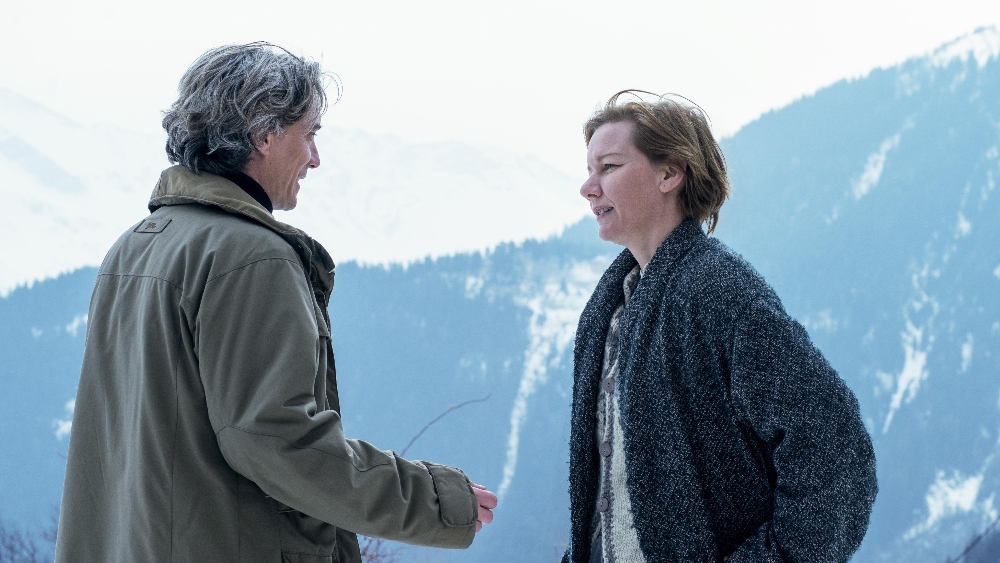
1. Anatomy of a Fall (NEON)
This year’s Palm D’Or winner at the Cannes Film Festival, Justine Triet’s masterful depiction of the complexity of modern relationships, is my favorite film of 2023. The film follows novelist Sandra Voyter as she attempts to prove her innocence of her husband’s murder in their Alps chalet. Played by German actress Sandra Hüller in arguably this year’s best performance, Voyter eschews any black or white notion of innocence or guilty, despite the up or down legal proceeding at the heart of the story. Certainly, Voyter is not innocent. With every explanation, with every detail, we see she is more astute and observant than the rest of us, and that she is in absolute, startling control of her environment. But she is not guilty of much that we all are not, either. Her life is complicated, her marriage was complicated, and her relationship to her child is complicated. Life itself rejects being reduced to simplistic notions of right and wrong, and Anatomy of A Fall, from its ultra loud opening scenes to its subdued conclusions, announces itself as one of the most complex and, therefore, compelling, films of 2023.
You can also read J. Don Birnam’s favorite films of 2021 and 2022, and Above the Line Editor Edward Douglas will be sharing his own list sometime very soon.
Twitter: @jdonbirnam
Instagram: @awards_predix


